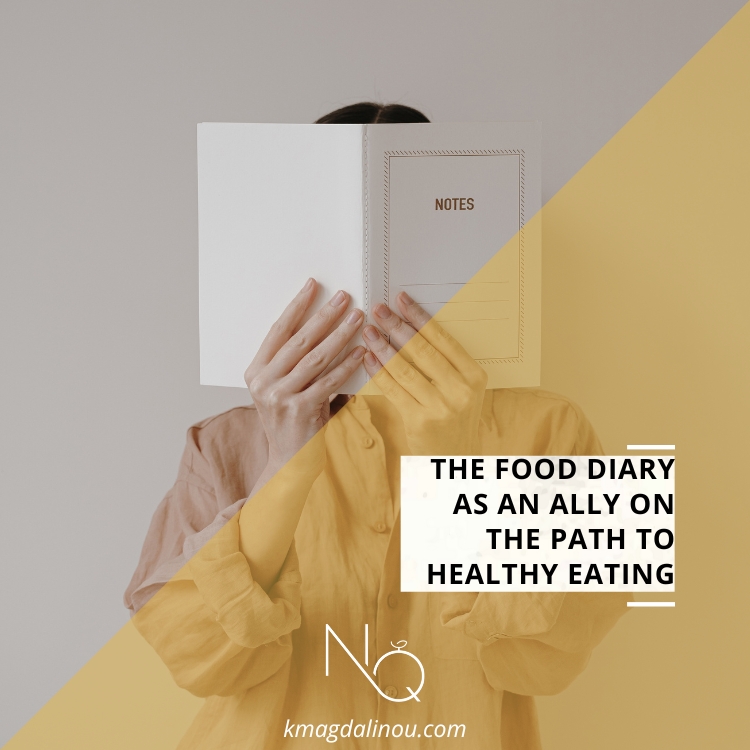To reach your goal and adopt healthy eating habits, you will receive tools during your sessions to support your daily efforts. One of the most effective tools I use with almost every client who entrusts me with their nutrition is the food diary. In this text, I will inform you about the benefits of keeping your own food diary.
What is a Food Diary?
A food diary is a record of all the foods and drinks consumed daily, along with relevant details such as meal times, portion sizes, and emotions associated with eating. But why is keeping a food diary so important?
1. Understanding What We Eat
Keeping track of your meals systematically helps you recognize your eating habits—many of which you may not have even realized. For example, you might think you eat only three meals a day, but in reality, you also consume small snacks throughout the day, such as a protein bar, a piece of chocolate, a spoonful of honey, tasting food while cooking, or having a soda. These may seem insignificant, but they add up. This self-awareness is the first step toward changing habits and replacing them with healthier choices.
2. Better Control Over Portion Sizes
It is common for people to misjudge the amount of food they consume. A food diary helps keep track of portion sizes more accurately, preventing both underestimation and overestimation. This is achieved through education on portion sizes, descriptive ways of measuring food, or even weighing ingredients. Additionally, this process helps in learning about food equivalences and serving sizes, making portion control easier over time.
3. Identifying Emotional Eating
Emotional eating is a common behavior, and a food diary can be a valuable tool in recognizing and addressing it. Many people eat not because they are physically hungry but as a response to emotions such as stress, sadness, boredom, fatigue, nervousness, or frustration. By recording emotions alongside food intake, interesting insights emerge about an individual’s psychological state. Once emotional eating patterns are identified, strategies can be developed to manage them. You can find more ways to cope with emotional eating in the article "Binge Eating Episode Management - 25 Ideas in Your "Magic Box".
4. A Powerful Self-Monitoring Tool
Keeping a food diary fosters a sense of accountability since individuals become aware that they need to document everything they consume. This awareness can reduce impulsive and mindless eating, as people know they will have to record their choices. Over time, this process strengthens mindful eating and makes it easier to adopt healthier habits.
5. Facilitating Collaboration with a Dietitian-Nutritionist
A food diary enhances communication between the client and the nutritionist. By sharing the diary with your dietitian, you provide valuable information such as the types of foods consumed, food combinations, meal timing, and their impact on hunger and satiety. It also reveals emotional triggers, fears or cravings for specific foods, mood fluctuations, motivation levels, and much more. For this reason, maintaining a detailed and honest food diary will undoubtedly help achieve your goals and improve your eating habits.
6. Tracking Progress Over Time
A food diary allows individuals to track their progress week by week. You can use a simple notebook to log your meals and, over time, observe how your food choices improve. Seeing progress written down provides motivation and reinforces positive changes.
The food diary is an essential tool in nutritional intervention. An experienced dietitian-nutritionist knows when to recommend it and to whom, ensuring better adherence to dietary guidelines, progress tracking, improved communication, and overall success in nutritional therapy.




